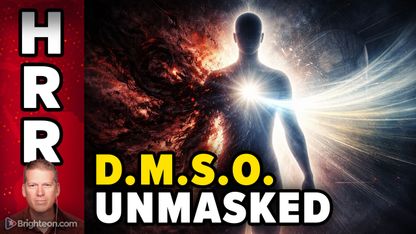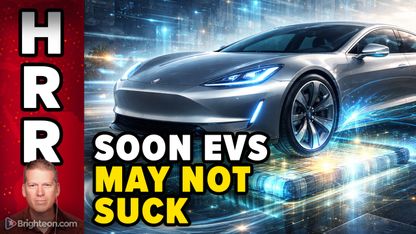
President Joe Biden wants to turn America into a major competitor in the EV battery industry with a $3.1 billion spending package for car production to move away from fossil fuels.
Much of this dream is pinned on a dusty land in the Nevada high desert known as Thacker Pass, which is the largest hard rock lithium reserve in the United States. It plays a key role in Biden's drive for expanded domestic lithium production and more EV batteries. China currently controls the world's EV battery production with more than 80 percent of all units created there.
But real solutions are needed before an avalanche of dead battery packs ends up sitting around and waiting for recycling like ticking time bombs. This is due to the potentially dangerous chemistry of lithium-ion EV units.
People who are working on the sales end of the EV revolution tend to give vague answers when asked about what will happen to all the outdated batteries.
They are quick to lead buyers into the idea of recycling or second life applications without giving any planning information.
Second life applications are an option for EV batteries no longer fit to power cars, but are suitable for alternative uses like energy storage.
Handling lithium batteries poses serious safety issues
For people who specialize in dangerous waste, managing lithium batteries is a serious issue.
"For me, the biggest challenge I see, especially with second life, is on the safety side. The packing and logistics aren't easy or cheap," said Scott Thibodeau, general manager of environmental services and solutions at Veolia North America, the second largest hazmat removal service in America.
Thibodeau explained that the chemistry of lithium-ion batteries is tricky considering they can't be ditched or recycled as effortlessly as some other materials. This demands specific variations within the developing EV industry to responsibly dismantle, encase and discard old units.
The batteries also present a serious fire hazard.
Reducing traditional fires is done by using water or chemicals to cut off the supply of oxygen. Lithium, however, is unique because it doesn't need oxygen to burn. And once ignited, it creates what is called a "thermal runaway" that is extremely difficult to control.
Recycling EV batteries presents another significant hurdle for the simple fact that they are not easily recycled. This is where second life applications come in, which can give a non-defective EV battery an additional 10 years of life. These second life applications also provide the growing recycling corporations time to catch up. (Related: Old EV lithium-ion batteries can be "harvested" to produce new batteries, say researchers.)
Most recyclers choose pyrometallurgy, a process where the battery is broken and melted down into a mass of plastics, metals and glues, which then requires additional energy-concentrated processing to regain the materials in a serviceable form.
However, only a small portion of the materials are retrieved, meaning it makes more economic sense to mine rather than recycle.
Lithium-ion battery recyclers are also in limited supply. Up to now they have been mainly focused on small batteries from personal technology devices.
There are also perils in storing batteries pending recycling due to the possibility of spontaneous combustion. In Australia, there are around three recyclers who are ready to accept electric car batteries and a good deal of their processing is done manually.
Unless batteries are made with recycling in mind and the recycling process itself is mechanized, any large-scale operation is hard to imagine.
Follow RoboCars.news for more news related to electric cars.
Watch this video about the federal government banning lithium batteries on planes, but pushing them on cars.
This video is from the channel The David Knight Show on Brighteon.com.
More related stories:
Bombshell science study shows that electric cars are DIRTIER for the planet than diesel vehicles.
GREEN is MEAN: Electric cars and other "green" tech is built on the backs of child slave labor.
Lithium mining for electric vehicle batteries is harming indigenous groups in Arizona.
Sources include:
Please contact us for more information.























